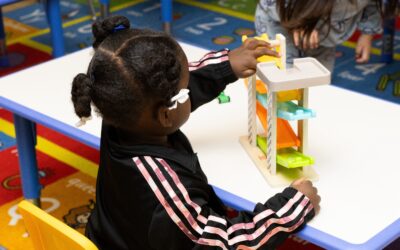People on the autism spectrum are no strangers to challenges in communication. Many of them will experience challenges with both their verbal and nonverbal communication skills in early childhood. As such- it is important for us to understand the way they communicate and learn how best to communicate with them as peers, friends and family.
The Challenges
To employ the best communication strategies- it’s important to first have an understanding of what some of the challenges individuals on the autism spectrum might face.
- Verbal vs. Non-verbal- Since autism can affect a child’s behavioral and cognitive development many children with autism have trouble developing their verbal communication skills. Some children may even be entirely non-verbal.
- Social Communication- Social communication can be a challenge for just about anyone. This is especially true for people on the spectrum who tend to struggle with peer to peer communication.
- Anxiety and Social Cues- People with autism are more likely to suffer from anxiety and other related conditions. On top of that, individuals on the spectrum also tend to struggle with reading social cues and comprehending colloquial or complex language that isn’t direct, like sarcasm.
Interested in ABA therapy for your child? Request a free enrollment info kit:
The Strategies
Keeping those in mind, maybe some of the following strategies will help you be a better communicator:
- Make the Effort- Since communicating with people, especially children, on the spectrum may seem difficult or daunting- many people choose to avoid it or get frustrated. The most important thing is putting in the effort in the first place. Have patience and try your best to be understanding with everyone you come in contact with or converse with, whether they’re on the spectrum or not.
- Share Their Interest- Some people on the spectrum have a hard time discussing several topics at once or seem hyperfocused on certain topics. If this is the case with your peer, try your best to share their topic of interest and talk with them about something you’re both clearly interested in. This can make for much more enriching and engaged conversations.
- Be Direct- Sarcasm and colloquialisms don’t always land with some people on the spectrum. If this is the case for your friend, try your best to be more direct in conversation. Avoid fluff and make sure your word’s true meaning is conveyed appropriately.
- Remember, You’re Not So Different- The truth is, many people on the spectrum communicate the exact same as their neurotypical peers. Keep this in mind as you navigate being a good support system, friend, family member or colleague for the people in your life. If you find yourself struggling- ask them how they think you can be a more effective communicator with them.
For more ABA and autism related news and tips visit our blog and follow us on Facebook, Instagram, and Twitter! If you have questions regarding ABA therapy services or you’re interested in visiting one of our locations, don’t hesitate to reach out to us on our contact page. We’re always here to answer your questions and support your family’s needs as best as we can.



